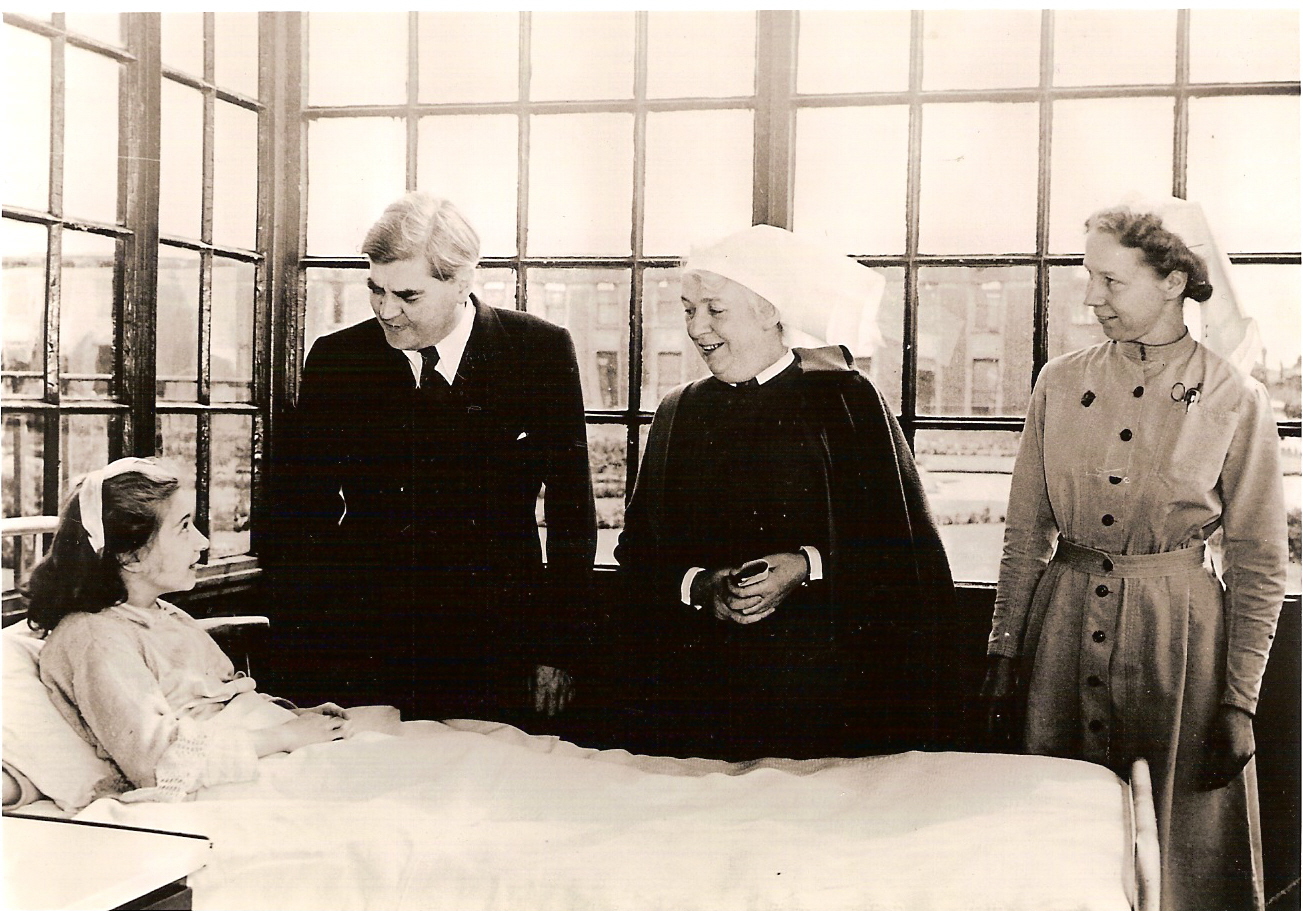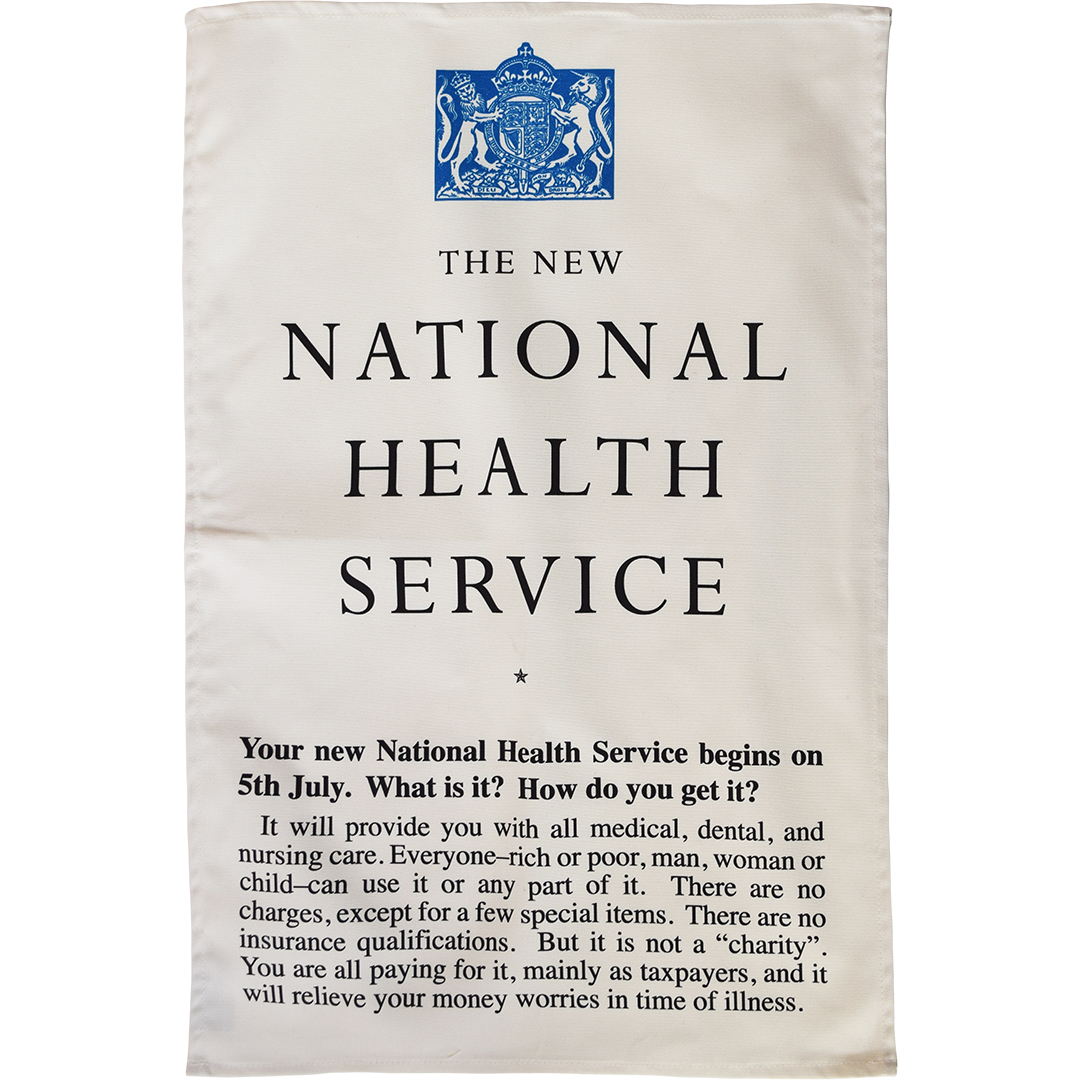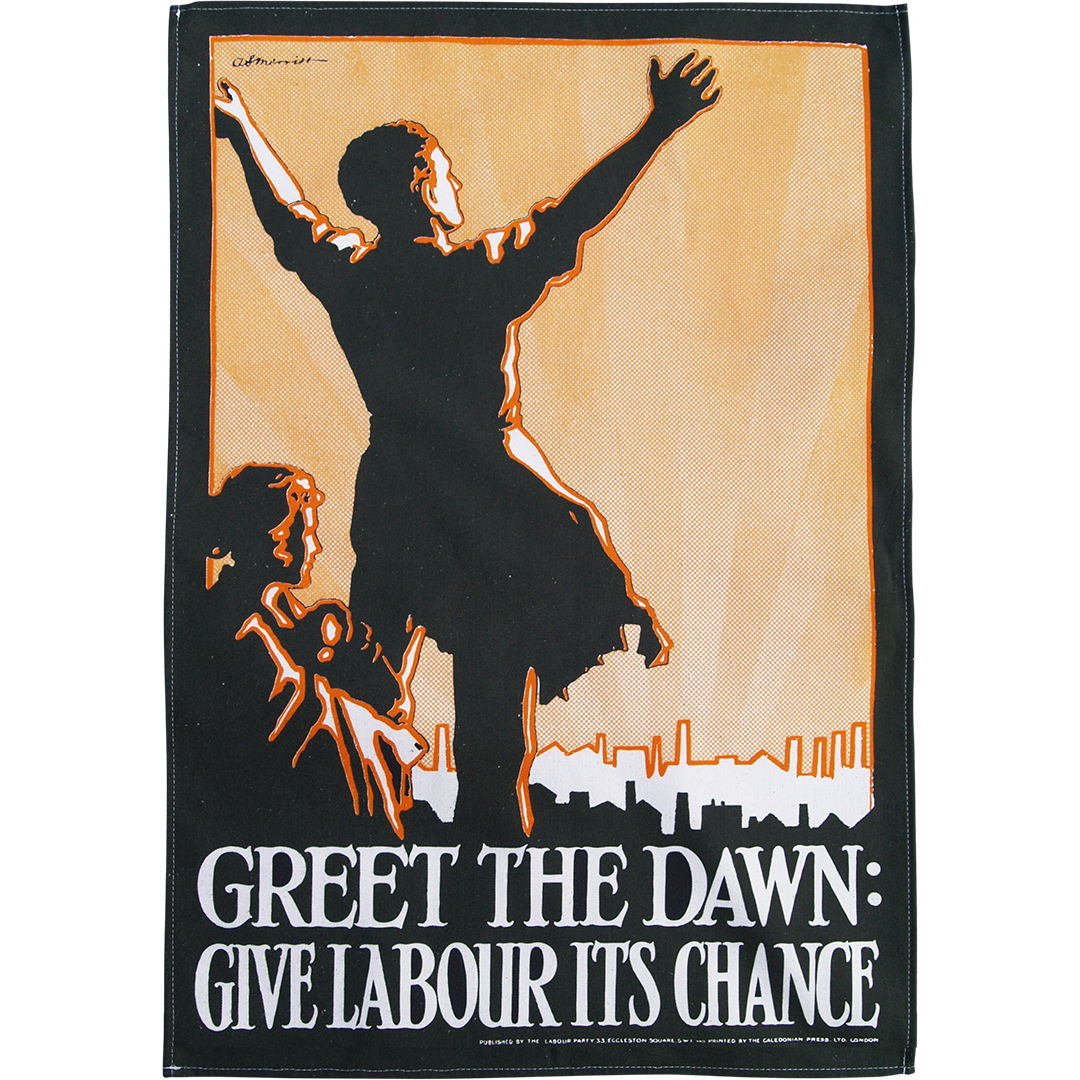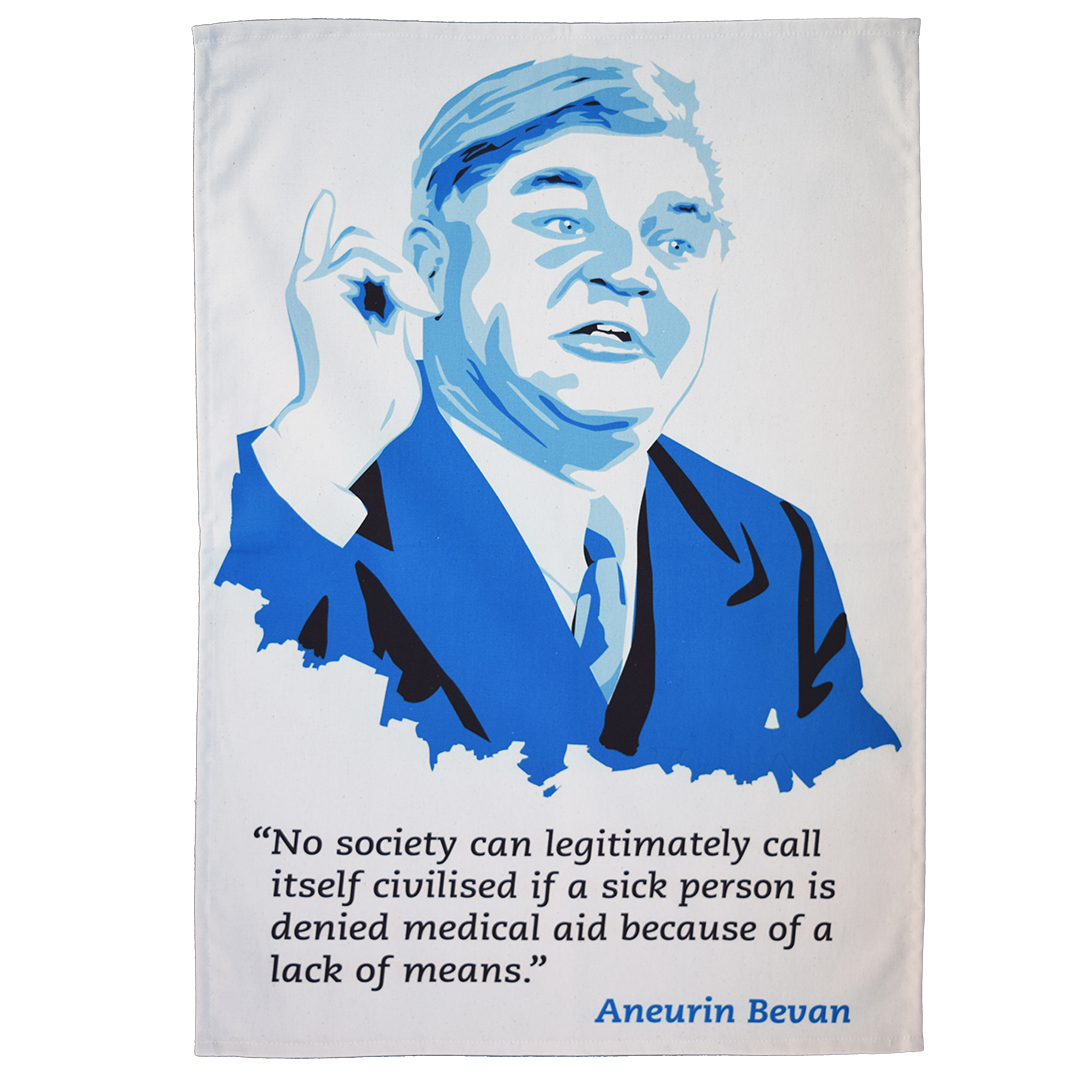The Birth of the National Health Service
Posted by Pete on 5th Jul 2022

The long and bitter fight for a universal healthcare system in the UK
The NHS was launched today in 1948.
Of all the great institutions and reforms brought about by the Left in Britain, the one that is closest to almost everyone's heart is the National Health Service - cherished by people across the political spectrum.
But it wasn’t created without a fight – and a long one at that.
Our new tea towel reproduces the cover of a leaflet announcing the launch of the brand new National Health Service
Click to view our NHS Launch tea towel
A number of activist groups were formed in the early twentieth century to demand a national health service, free at the point of use.
In 1930, the Socialist Health Association was formed by medical professionals like Charles Wortham Brook and Somerville Hastings.
The group pushed the Labour Party to commit to building a system of free healthcare, which it did two years later.
Several members then volunteered for the Spanish Medical Aid Committee, which provided health services to the Republican forces fighting fascism in the Spanish Civil War.
There, they mingled with radical medics from all over the world, like the Canadian doctor Norman Bethune.
But back at home, the Tories were still leading a stiff political fightback against the vision of an NHS.
This tea towel is based on a vintage poster created by the Labour Party during the 1923 General Election
Click to view our Greet the Dawn tea towel
By the outbreak of WW2, after a decade of biting poverty due to the Great Depression, a sort of consensus was forming that healthcare needed to be made more accessible in Britain.
But the type and scale of reform was still up for debate.
The Right still wanted to keep healthcare directly tied to a financial contribution by the recipient, through some sort of insurance scheme.
But increasingly radical voices on the Left were demanding healthcare provision as a universal and unconditional social service.
It was World War Two which made these radical demands seem plausible. A state-run Emergency Hospital Service was established to care for soldiers returning from war and citizens injured in the Blitz.
The government had proved that – if it had to – it could provide healthcare free at the point of use.
Steadily, the British people saw that a bigger state was better for everyone.
Not to mention the general rise in leftist sentiment across the country, spurred on by the war effort and the fight against fascism.
This created the conditions for Clement Attlee's crushing defeat of Churchill’s Tories in the 1945 General Election.
Labour promised to build a ‘Socialist Commonwealth’ in Britain, and a centrepiece of that vision was a National Health Service.
It was up to the Health Minister, Aneurin 'Nye' Bevan, to bring it about.
An ex-miner from South Wales, Nye Bevan was the real firebrand of Attlee's cabinet
Click to view our Nye Bevan tea towel
Over the next few years, Bevan fought back against obstruction by the Tories and the British Medical Association (BMA).
And he won: on the 5th of July 1948, the U.K. National Health Service opened its doors for the first time.
Its basic principles were simple: healthcare would be free at the point of use to anyone in the country, regardless of their citizenship status. If you’re a human being in the U.K., you’re getting free care.
But the bitter fight to create a National Health Service on these principles immediately turned into a bitter fight to maintain a National Health Service on these principles.
The Right might have failed to prevent the NHS from being formed, but they’ve been trying to chip away at it ever since.
As soon as 1951, Nye Bevan found himself having to resign in protest at the introduction of prescription charges on dental care and glasses.
‘National Health Service’ is just a name: the core principles of universal and free healthcare are what’s important.
Bevan knew this in 1951, and we’d do well to remember it today.
As Bevan himself said:
“The NHS will last as long as there are folk left with faith to fight for it.”



